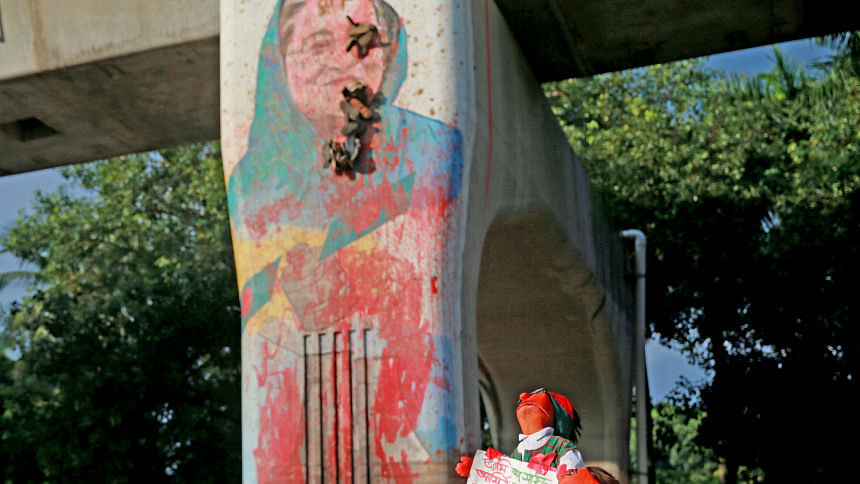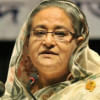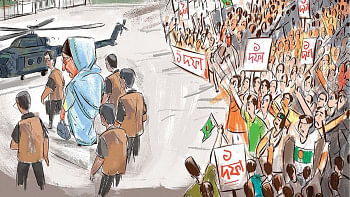The night Sheikh Hasina’s fear shield crumbled

For over 15 years, Sheikh Hasina reigned over Bangladesh with a grip so tight that even whispers of dissent were drenched in caution. Protests came and went, including the quota reform movement, the road safety movement, and protests against corruption, money laundering, the Digital Security Act, ecological destruction, and injustice. But the target was always indirect. Ministers were blamed, advisers were criticised, and the ruling party's student wing was held responsible. Yet one remained above reproach: Hasina herself.
It was not just fear. It was political choreography. Protesters had to ensure their allegiance to the Liberation War and Sheikh Mujibur Rahman. They often stated that the prime minister must have been "misled" rather than complicit. It was understood, even accepted, that corruption plagued her government and party, that her allies looted banks, grabbed land, and repressed dissent. Few dared to accuse her directly. To do so meant legal hurdles, if not worse. Hasina wasn't just the prime minister—she had become an untouchable myth.
That myth shattered on the night of July 14, 2024.
Following her return from a diplomatic tour to China amidst a nationwide student uprising against a controversial quota system, Hasina held a press conference. Instead of showing empathy or offering reform, she hurled slurs. Saying that the quota system is not for the "children and grandchildren of razakars," she taunted the students with the loaded insult historically used to brand enemies of the state. It was a calculated tactic, used for over a decade to shut down dissent by equating criticism of her rule with betrayal of the nation.
But this time, it backfired.
That very night, students poured into the streets with a defiant chant echoing from campus to campus: "Ami ke, tumi ke? Razakar! Razakar!" (Who am I? Who are you? Razakar! Razakar!)
It was not a slogan aimed at history. It was aimed at her.
For the first time in a decade and a half, the youth of Bangladesh publicly rejected the foundational myth that had shielded Hasina. They turned her own weapon, the language of liberation, against her. The chant was not just defiant. It was revolutionary. It stripped the regime of its so-called ideological armour and laid bare the raw authoritarianism beneath.
The courageous acts of that night set off a chain reaction. In the following days, slogans grew bolder. Protesters replaced euphemism with clarity. The people who used to say, "Her advisers misled her," now shouted, "Hasina is the fascist, Hasina is the looter-in-chief." Where they once begged for mercy, they now demanded justice.
Within 20 days, amid surging protests, Sheikh Hasina fled the country, seeking refuge in India, the very nation she had long courted as an ally.
The fall of the authoritarian ruler in Bangladesh began with a chant.
July 14 will be remembered not just as the day students were insulted, but as the night they stopped being afraid. It was the moment a generation found its voice, and used it not to ask for mercy, but to demand accountability.
The myth of invincibility ended when ordinary students dared to speak the truth in the face of power.
And when that truth arrived, it arrived loudly.
Dr Sibbir Ahmad is a postdoctoral fellow at the University of Virginia and president of Socchar: Torture Watchdog Bangladesh. He can be reached at [email protected].
Views expressed in this article are the author's own.
Follow The Daily Star Opinion on Facebook for the latest opinions, commentaries, and analyses by experts and professionals. To contribute your article or letter to The Daily Star Opinion, see our submission guidelines.

 For all latest news, follow The Daily Star's Google News channel.
For all latest news, follow The Daily Star's Google News channel. 










Comments